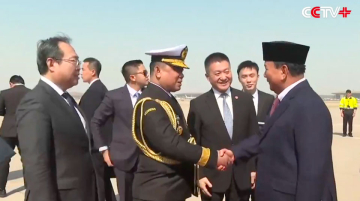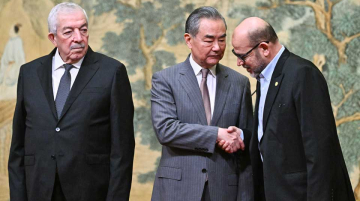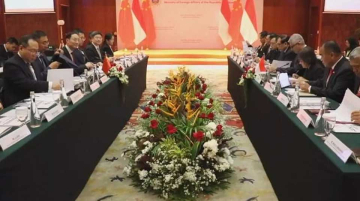
This past weekend, President Xi Jinping and Indonesia’s President Prabowo Subianto exchanged warm pleasantries over the phone, celebrating 75 years of diplomatic relations between their two nations. It was a conversation rich in symbolism and ambition, with talk of “shared futures,” “strategic partnerships,” and a bilateral relationship that now “has global influence.”
There are good reasons for celebration. China has become Indonesia’s largest trading partner, with trade volumes rising steadily over the past decade. Chinese investments have flowed into infrastructure, manufacturing, and industrial sectors. The relationship has also expanded into emerging fields like artificial intelligence, agriculture, electric vehicles, and even space cooperation. These developments reflect deepening interdependence and growing ambition on both sides.
A Relationship with Uneven Benefits
But behind the high-level gestures and impressive numbers lies a partnership marked by real and growing challenges.
The trade relationship, for one, remains deeply imbalanced. Chinese exports continue to dominate Indonesian markets, while Indonesian products struggle to access China’s. This widening trade deficit puts pressure on local industries and raises concerns about long-term sustainability.
Chinese investment, too, has proven complicated. High-profile projects — particularly in the nickel sector — have spurred criticism over environmental degradation and labor practices. In areas like Sulawesi, one of the country’s main nickel belts, local communities have protested against pollution and the limited involvement of Indonesian workers. Many of these industrial enclaves generate economic output but without meaningful local participation or benefits.
Energy investments further complicate the picture. Several Chinese-backed projects rely on captive coal-fired power plants to support industrial zones — a troubling trend at a time when Indonesia is seeking to pivot toward renewables. Rather than doubling down on outdated fossil fuels, future cooperation should prioritize investments in clean energy that align with Indonesia’s climate goals.
Diplomatic Delicacy on Sensitive Issues
Tensions are not limited to the economy. In the South China Sea, Chinese vessels have repeatedly entered Indonesia’s exclusive economic zone near the Natuna Islands. Although Indonesia is not a formal claimant in the broader maritime dispute, it has consistently pushed back against Beijing’s expansive “nine-dash line.” These incursions highlight a clear friction between cooperation rhetoric and on-the-ground realities.
Political sensitivities also loom. Jakarta has taken a cautious approach to contentious issues such as Xinjiang, where reports of rights abuses against Uyghur Muslims have drawn international concern. While Indonesia has avoided open confrontation, officials and religious leaders have at times voiced unease — a reflection of public sentiment in the world’s largest Muslim-majority nation. Meanwhile, the One China Policy continues to limit engagement with Taiwan, even as opportunities for technological and educational collaboration grow.
Security concerns are also rising. Reports of Chinese cyber espionage targeting Indonesian government networks have emerged in recent years. At the same time, Indonesian authorities have cracked down on criminal activities involving Chinese nationals, including illegal gambling and immigration issues. These issues, while not reflective of official policy, cast a shadow over the broader relationship.
Balancing Act in an Era of Rivalry
President Prabowo, for his part, has reiterated his desire to deepen cooperation under the five pillars of political, economic, cultural, maritime, and security ties. His message was warm, respectful, and in line with Indonesia’s longstanding foreign policy tradition of non-alignment.
But the geopolitical landscape he inherits is more fraught than that of his predecessors. As U.S.-China rivalry intensifies, countries like Indonesia face growing pressure to define the terms of their engagement. Jakarta may not wish to choose sides — but it increasingly must choose how, and on what terms, it engages with major powers.
Over the years, China has invested heavily in building soft power across the Indonesian archipelago. From media partnerships and think tank exchanges to university scholarships and “Muslim diplomacy,” Beijing has sought to deepen cultural and public ties. Promoting mutual understanding is commendable — but it cannot be used to obscure more difficult realities. When soft power becomes a tool to sanitize human rights concerns or political pressure, it ceases to be diplomacy and starts to look like distortion.
A Path Forward: Mutual Benefit and Local Priorities
At the same time, the potential for constructive engagement remains real. Indonesia can — and should — work with China on infrastructure, technology, and innovation. But Jakarta must ensure that partnerships strengthen local capacity, promote fair labor practices, and align with national priorities — particularly in the green economy. Deals must be transparent, inclusive, and mutually beneficial.
Ordinary Indonesians are paying attention. They care less about diplomatic slogans and more about jobs, clean air and water, and national sovereignty. A relationship framed as “win-win” must actually deliver for people on the ground.
The 75th anniversary of diplomatic ties is a meaningful milestone. It marks a shared journey through post-colonial transformation, Cold War politics, and the evolution of two ambitious nations. But anniversaries are not just about looking back — they are about shaping what comes next.
If the past 75 years have taught us anything, it’s this: the future of the China-Indonesia relationship will depend not on declarations but on the hard work of building trust — consistently, transparently, and on Indonesia’s own terms.
This article was co-authored by Yeta Purnama, a researcher at the Center of Economic and Law Studies (CELIOS), and Muhammad Zulfikar Rakhmat, Director of the China-Indonesia Desk at CELIOS.





